Libraries Closed on MLK Jr Day
Both the Dental and Isché Libraries will be closed in honor of Martin Luther King, Jr Day on Monday, January 16th. The Libraries will be open their regular hours over the weekend.
Both the Dental and Isché Libraries will be closed in honor of Martin Luther King, Jr Day on Monday, January 16th. The Libraries will be open their regular hours over the weekend.
 Hanna Kwasik, Head-Cataloging and Serials, retired from the Libraries on December 31, 2016. After working at the Earl K. Long Library at the University of New Orleans, Hanna joined the staff of the Isché Library in September 1999 as Serials Librarian. During her time at LSUHSC, Hanna guided the Libraries’ transition from predominantly print to electronic resources. Of note was that during the aftermath of Hurricane Katrina, she helped to ensure that LSUHSC patrons were able to access Library resources while spread throughout the state by transforming the journal collection to online-only almost overnight. Hanna has served as a mentor and friend to her many coworkers and colleagues throughout Louisiana and the region.
Hanna Kwasik, Head-Cataloging and Serials, retired from the Libraries on December 31, 2016. After working at the Earl K. Long Library at the University of New Orleans, Hanna joined the staff of the Isché Library in September 1999 as Serials Librarian. During her time at LSUHSC, Hanna guided the Libraries’ transition from predominantly print to electronic resources. Of note was that during the aftermath of Hurricane Katrina, she helped to ensure that LSUHSC patrons were able to access Library resources while spread throughout the state by transforming the journal collection to online-only almost overnight. Hanna has served as a mentor and friend to her many coworkers and colleagues throughout Louisiana and the region.
Hanna is also an avid and award-winning photographer. In 2014, her photo of an assassin bug and hibiscus plant received a second-place commendation in the Times-Picayune Garden Photo Contest. Her photo “Gondola Ride Under the Clouds” received the first-place award in the recreation-sports category for the Advocate’s “Heart of City Park” photo contest. In addition, her photo of violets was featured in the 2014 LSU Ag Center calendar.
Although we will miss her tremendously, we all wish Hanna much happiness and joy and she embarks on this new chapter in her life.

The Library is pleased to announce that we have received special funding from the Board of Regents e-Textbook Project, Affordable Learning LOUISiana, to purchase 2 required textbooks for Spring 2017:
Analyzing and conceptualizing the theoretical foundations of nursing by Janice Morse (2017) for NURS 7307 taught by Dr. Gloria Giarratano
Vestibular disorders: a case-study approach to diagnosis and treatment, 3rd ed., by Joseph Furman (2010) for SPTHAUD 7323 taught by Rachel Wood.
These books are available with unlimited users and can be accessed anytime and from anywhere (on or off campus) through the EBSCO eBook Collection.
Dr. Joseph C. Rallo, Commissioner of Higher Education, directed the Board of Regents to find ways that the state could help students with the increasing costs of education and, in particular, textbooks. The Affordable Learning LOUISiana program is coordinated by LOUIS: the Louisiana Library Network, a consortium of higher education libraries in the state. Through LOUIS, member libraries can participate in a variety of collaborative purchases that help reduce the costs of library resources such as databases, online journals, and ebooks. LSUHSC-NO has been a member library for many years, and we are grateful for the LOUIS staff and all of their efforts to help improve higher education in the state of Louisiana.
The Library has a large collection of ebooks through a variety of sources, so be sure to check the INNOPAC catalog and our eBooks LibGuide for more information. For help with remote access, please consult our Off-Campus Access Information.
 A new selection of articles has been added to the Faculty Publications display in the Ische Library. These eight articles, as well as all of the articles in our Faculty Publications database, are authored by at least one member of our research community here at LSUHSC-New Orleans. Each month the Library is proud to present copies of eight of these publications in a rotating display of 16. They can be viewed in the Reference area, on the wall between the main entrance and the Library elevator, on the third floor of the Resource Center Building.
A new selection of articles has been added to the Faculty Publications display in the Ische Library. These eight articles, as well as all of the articles in our Faculty Publications database, are authored by at least one member of our research community here at LSUHSC-New Orleans. Each month the Library is proud to present copies of eight of these publications in a rotating display of 16. They can be viewed in the Reference area, on the wall between the main entrance and the Library elevator, on the third floor of the Resource Center Building.
Here is a list of the newest articles to be featured, with the LSUHSC-NO researchers in bold print:
Dai G, Rady HF, Huang W, Shellito JE, Mason C, Ramsay AJ. Gene-based neonatal immune priming potentiates a mucosal adenoviral vaccine encoding mycobacterial Ag85B. Vaccine. 2016;34:6267-6275.
McGinn MA, Paulsen RI, Itoga CA, Farooq MA, Reppel JE, Edwards KN, Whitaker AM, Gilpin NW, Edwards S. Withdrawal from chronic nicotine exposure produces region-specific tolerance to alcohol-stimulated GluA1 phosphorylation. Alcohol Clin Exp Res. 2016;40(12):2537-2547.
Musto AE, Rosencrans RF, Walker CP, Bhattacharjee S, Raulji CM, Belayev L, Fang Z, Gordon WC, Bazan NG. Dysfunctional epileptic neuronal circuits and dysmorphic dendritic spines are mitigated by platelet-activating factor receptor antagonism. Sci Rep. 2016;630298.
Rae G, Cork JR, Karpinski AC, McGoey RR, Swartz WJ. How the integration of pathology in the gross anatomy laboratory affects medical students. Teach Learn Med. 2016;1-8.
Sanchez MD, Ochoa AC, Foster TP. Development and evaluation of a host-targeted antiviral that abrogates herpes simplex virus replication through modulation of arginine-associated metabolic pathways. Antiviral Res. 2016;132:13-25.
Watson ZL, Ertel MK, Lewin AS, Tuli SS, Schultz GS, Neumann DM, Bloom DC. Adeno-associated virus vectors efficiently transduce mouse and rabbit sensory neurons coinfected with herpes simplex virus 1 following peripheral inoculation. J Virol. 2016;90(17):7894-7901.
Zhao Y, Jaber V, Lukiw WJ. Over-expressed pathogenic miRNAs in alzheimer’s disease (AD) and prion disease (PrD) drive deficits in TREM2-mediated Abeta42 peptide clearance. Front Aging Neurosci. 2016;8:Article140.
Zhong K, Li X, Le X, Kong X, Zhang H, Zheng X, Wang P, Zhang Z. MoDnm1 dynamin mediating peroxisomal and mitochondrial fission in complex with MoFis1 and MoMdv1 is important for development of functional appressorium in magnaporthe oryzae. PLoS Pathog. 2016;12(8):e1005823.
Publications cited in the Faculty Publications database are harvested weekly from a variety of sources, such as PubMed, SCOPUS, and CINAHL, to name a few. In addition to articles they include books, book chapters, papers, editorials, letters to the editor, and meeting abstracts, all authored by at least one member of the LSUHSC-NO community. The database is maintained by Reference Librarian Kathy Kerdolff and is available to the general public here or via the Library’s webpage. For a PDF of a bibliography of this month’s additions, click here. If you have an article you would like us to highlight or if you have any questions regarding the display or the database, you can contact Kathy Kerdolff.
Please come to the Library and view these recent publications by our research community.
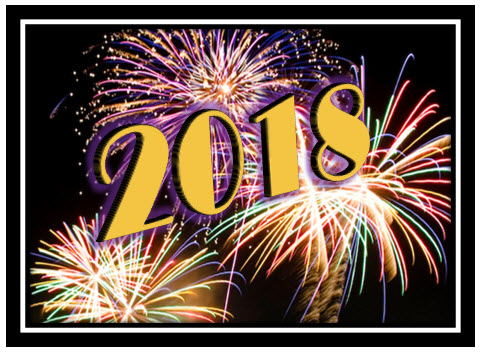 A new selection of articles has been added to the Faculty Publications display in the Ische Library. These eight articles, as well as all of the articles in our Faculty Publications database, are authored by at least one member of our research community here at LSUHSC-New Orleans. Each month the Library is proud to present copies of eight of these publications in a rotating display of 16. They can be viewed in the Reference area, on the wall between the main entrance and the Library elevator, on the third floor of the Resource Center Building.
A new selection of articles has been added to the Faculty Publications display in the Ische Library. These eight articles, as well as all of the articles in our Faculty Publications database, are authored by at least one member of our research community here at LSUHSC-New Orleans. Each month the Library is proud to present copies of eight of these publications in a rotating display of 16. They can be viewed in the Reference area, on the wall between the main entrance and the Library elevator, on the third floor of the Resource Center Building.
Here is a list of the newest articles to be featured, with the LSUHSC-NO researchers in bold print:
Allen PG, Hetzler LT, Nuss DW, Walvekar RR, Penton G, Sharbaugh E. The hospital otolaryngologist: The Louisiana State University experience. Laryngoscope. 2017;[epub].
Harch PG, Andrews SR, Fogarty EF, Lucarini J, Van Meter KW. Case control study: Hyperbaric oxygen treatment of mild traumatic brain injury persistent post-concussion syndrome and post-traumatic stress disorder. Med Gas Res. 2017;7(3):156-174.
Harrison-Bernard LM, Naljayan MV, Eason JM, Mercante DE, Gunaldo TP. Effectiveness of interprofessional education in renal physiology curricula for health sciences graduate students. Adv Physiol Educ. 2017;41(4):594-598.
Loupe JM, Miller PJ, Crabtree JS, Zabaleta J, Hollenbach AD. Acquisition of an oncogenic fusion protein is sufficient to globally alter the landscape of miRNA expression to inhibit myogenic differentiation. Oncotarget. 2017;8(50):87054-87072.
Pahng AR, Paulsen RI, McGinn MA, Edwards KN, Edwards S. Neurobiological correlates of pain avoidance-like behavior in morphine-dependent and non-dependent rats. Neuroscience. 2017;366:1-14.
Roltsch Hellard EA, Impastato RA, Gilpin NW. Intra-cerebral and intra-nasal melanocortin-4 receptor antagonist blocks withdrawal hyperalgesia in alcohol-dependent rats. Addict Biol. 2017;22(3):692-701.
Samuelson DR, Shellito JE, Maffei VJ, Tague ED, Campagna SR, Blanchard EE, Luo M, Taylor CM, Ronis MJJ, Molina PE, Welsh DA. Alcohol-associated intestinal dysbiosis impairs pulmonary host defense against Klebsiella pneumoniae. PLoS Pathog. 2017;13(6):e1006426.
Todaro DR, Augustus-Wallace AC, Klein JM, Haas AL. The mechanism of neural precursor cell expressed developmentally down-regulated 4-2 (Nedd4-2)/NEDD4L-catalyzed polyubiquitin chain assembly. J Biol Chem. 2017;292(47):19521-19536.
Publications cited in the Faculty Publications database are harvested weekly from a variety of sources, such as PubMed, SCOPUS, and CINAHL, to name a few. In addition to articles they include books, book chapters, papers, editorials, letters to the editor, and meeting abstracts, all authored by at least one member of the LSUHSC-NO community. The database is maintained by Reference Librarian Kathy Kerdolff and is available to the general public here or via the Library’s webpage. For a PDF of a bibliography of this month’s additions, click here. If you have an article you would like us to highlight or if you have any questions regarding the display or the database, you can contact Kathy Kerdolff.
Please come to the Library and view these recent publications by our research community.
 Happy 2017! Both the Dental and Isché Libraries have re-opened after Winter Break.
Happy 2017! Both the Dental and Isché Libraries have re-opened after Winter Break.
Both are back on their normal hours of operation.
The Isché and Dental Libraries are closed until January 3rd at 8am.
Have a safe and happy winter break!
Both the Dental & Isché Libraries will begin Winter Break hours on Monday, December 19th. The Dental Library will be open from 8am to 5pm and the Isché Library will be open 8am to 6pm.
Both Libraries will closed from Friday, December 23rd through Monday, January 2nd. Both Libraries will reopen on Tuesday, January 3rd at 8am and resume normal hours.
STATRef has released their quarterly update! The new features expands their already extensive collection of books and practice test. The updates included:
Please visit StatRef to explore all of the new features!
The E-Journals & E-Books A to Z List has undergone a radical makeover and we hope you will be pleased with the results.
First, the aesthetics of the list have changed:
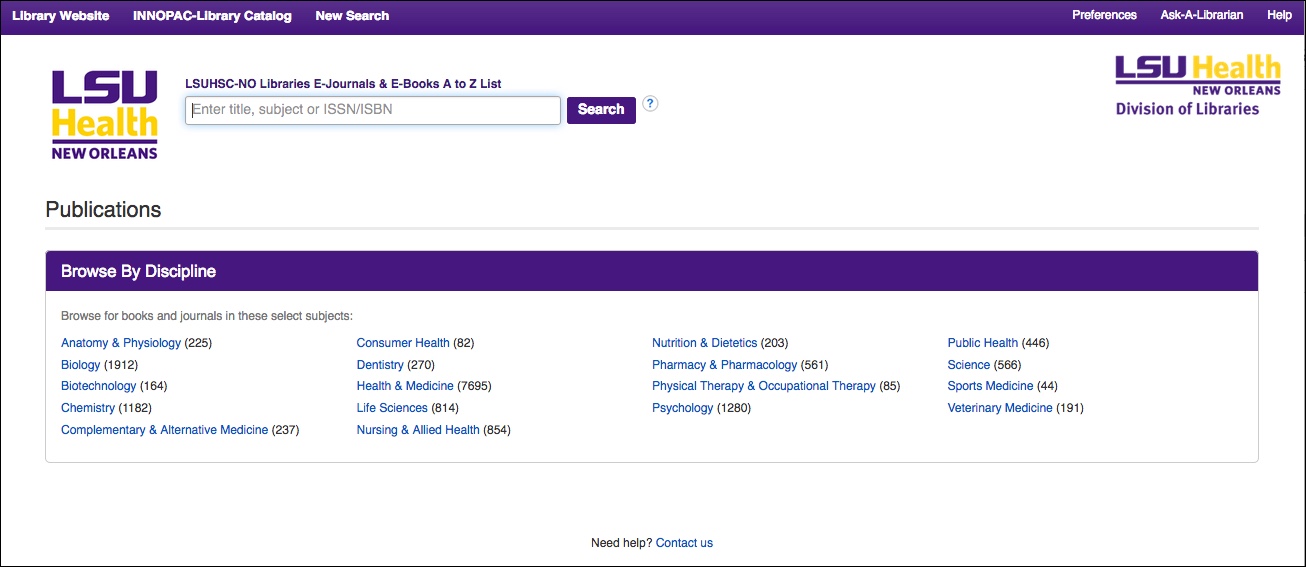
The searching function of the list has also been overhauled. When you begin to type in a title or term, you will now see potential matches from the resources available on the list:
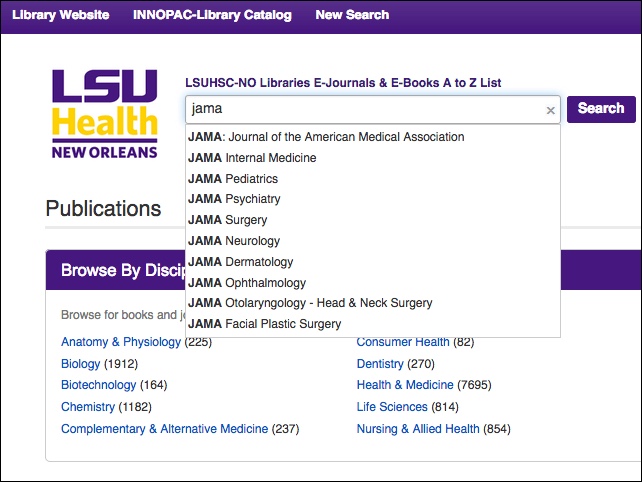
Although the page may look different, accessing the journals or books on the list is the same as the old version with available years and sources still listed for the titles:
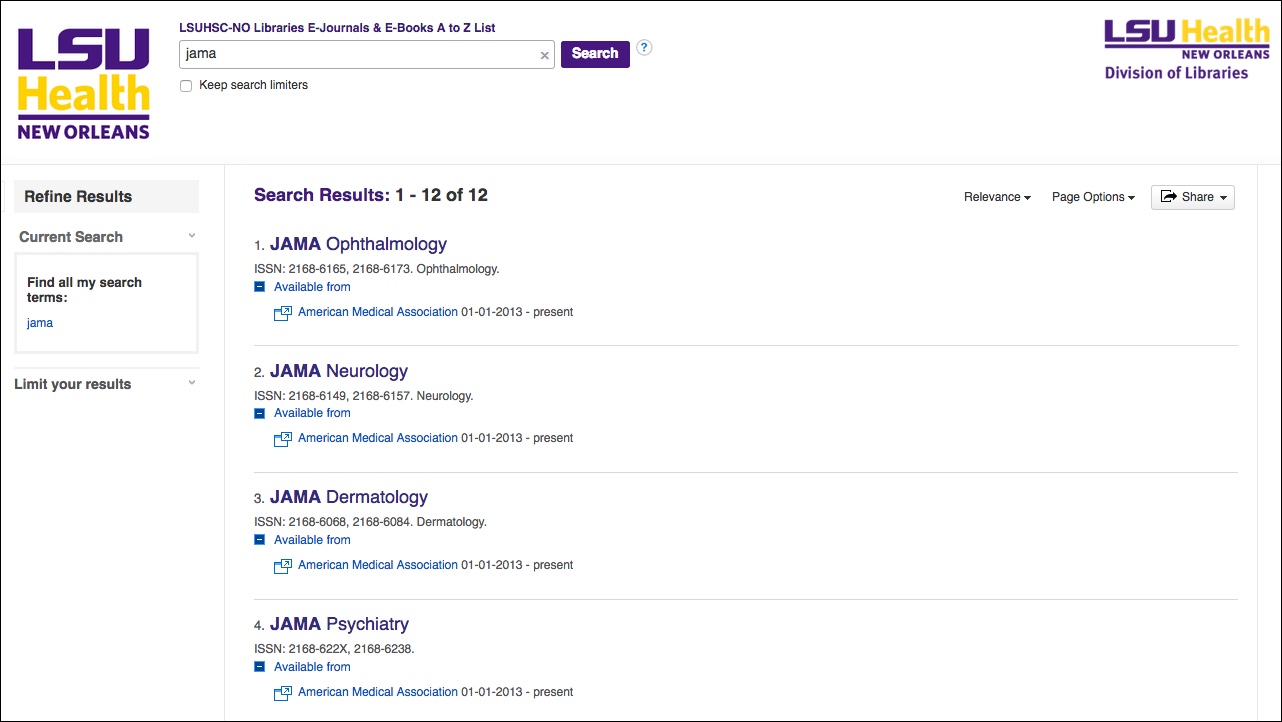
Although it looks very different and has some new features, all of the titles that were available on the old version are still available in the new E-Journals & E-Books A to Z List. If you need any assistance with this or any other Library resources, please do not hesitate to contact us.
On November 29th, the US Surgeon General‘s Office released the office’s first ever comprehensive report on addiction. The full report, Facing Addiction in America: the Surgeon General’s Report on Alcohol, Drugs, and Health, is over 400 pages long. There is an Executive Summary which is 36 pages in length.
As we are still waiting for the problem with PubMed and the WebBridge Link Resolver to be fixed, we have introduced a temporary alternative to restore some of the link resolver features to PubMed. When you click on our “Check Full Text” icon in PubMed, you will now see a screen similar to the following listing any potential sources to get to the article you need:
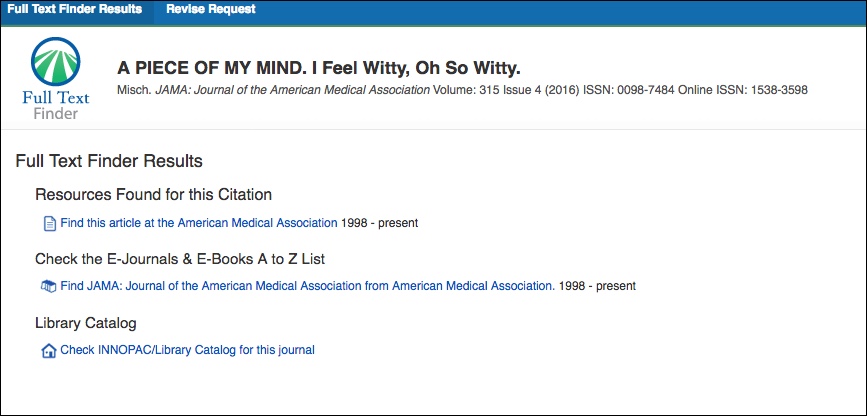
This temporary option uses the coverage information from our E-Journals & E-Books A to Z List. Although it covers many of the journals we receive, it does not include all of our subscribed titles nor our print holdings. Regardless of whether an online source is found for the article, each page will provide a link to the Library’s Catalog so that you can also check there to see if we have that particular journal in print or online.
We hope this new interim option will be of help to better get you to the articles you need when searching PubMed. Once the problem is rectified, we will return to using the WebBridge Link Resolver for PubMed, but we currently do not know when that will happen. Additionally, the WebBridge Link Resolver continues to be used for all other Library databases where it is presently available.
If you need assistance with this or any other Library resources, please do not hesitate to contact us.
The Isché Library welcomes John P. Bourgeois, a new librarian in the Reference Department. He started on December 1, 2016.
John holds a Master of Library and Information Science from LSU in Baton Rouge and a Master of Public Health from Tulane University. John has worked at Tulane and Harvard in their Schools of Public Health, and he is coming to us from Nicholls State University in Thibodaux where he was a Research Librarian and head of Access Services.
Please join us in welcoming him to LSU Health. If you are in the library, stop to say hello and meet John!
 A new selection of articles has been added to the Faculty Publications display in the Ische Library. These eight articles, as well as all of the articles in our Faculty Publications database, are authored by at least one member of our research community here at LSUHSC-New Orleans. Each month the Library is proud to present copies of eight of these publications in a rotating display of 16. They can be viewed in the Reference area, on the wall between the main entrance and the Library elevator, on the third floor of the Resource Center Building.
A new selection of articles has been added to the Faculty Publications display in the Ische Library. These eight articles, as well as all of the articles in our Faculty Publications database, are authored by at least one member of our research community here at LSUHSC-New Orleans. Each month the Library is proud to present copies of eight of these publications in a rotating display of 16. They can be viewed in the Reference area, on the wall between the main entrance and the Library elevator, on the third floor of the Resource Center Building.
Here is a list of the newest articles to be featured, with the LSUHSC-NO researchers in bold print:
Publications cited in the Faculty Publications database are harvested weekly from a variety of sources, such as PubMed, SCOPUS, and CINAHL, to name a few. In addition to articles they include books, book chapters, papers, editorials, letters to the editor, and meeting abstracts, all authored by at least one member of the LSUHSC-NO community. The database is maintained by Reference Librarian Kathy Kerdolff and is available to the general public here or via the Library’s webpage. For a PDF of a bibliography of this month’s additions, click here. If you have an article you would like us to highlight or if you have any questions regarding the display or the database, you can contact Kathy Kerdolff.
Please come to the Library and view these recent publications by our research community.
The Centers for Disease Control has launched a new resource, VetoViolence. This website offers “free, online, interactive, and engaging violence prevention tools, trainings, and resources based on the best available evidence and research. The tools, trainings, and resources provide practical knowledge and skills to assist and enhance the work of violence prevention practitioners.” The aim of the website is to create safer communities for everyone.